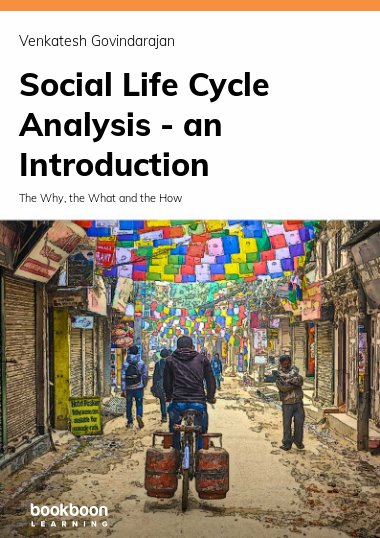A primer to help you to get introduced to Social LCA (S-LCA), this 100-page e-book, written in lucid, reader-friendly English, promises to create interest in this sustainability analysis tool. The questions - What, Why and How – are answered in the six chapters of this book. A couple of published case studies have been explained, and a review paper with a long list of useful references, establish the transition from theory to application seamlessly. Readers must remember that this is just the gateway to the fast-growing body of knowledge that S-LCA is. Read more and understand better!
About the author
Dedicated, driven, goal-oriented, doctoral degree holder (Industrial Ecology, Norway), with two Master’s degrees (Industrial Ecology, Germany-Singapore; Mechanical Engineering, India), and professionally useful diplomas, diverse work experience as researcher in industrial ecology, sustainable development, urban water systems etc., tutor, writer-editor, having excelled in all these capacities; capable of leading teams to delivering the goods, consistently, by drawing upon my pool of experience. On the lookout for challenging opportunities in teaching, supervision and academic research.

